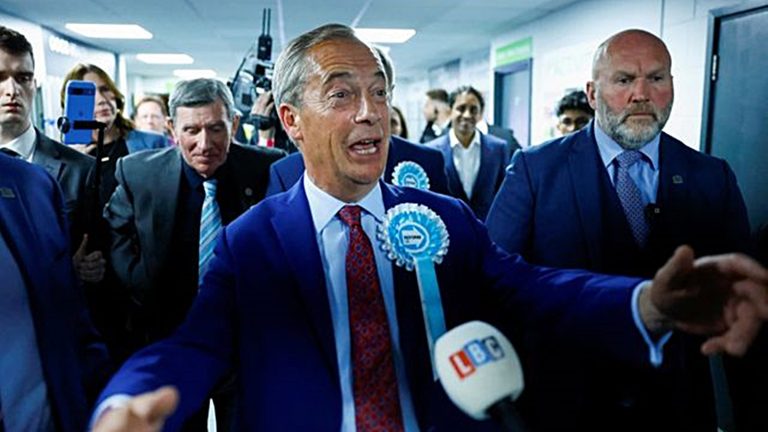Is Nigel Farage’s quest to rid Reform UK of amateurism finally paying off? For months, Farage has pledged to professionalise the party, blaming its underwhelming general election performance—just five seats—on its lack of polish and organisation.
Friday’s razor-thin win in the Runcorn and Helsby byelection hints that his strategy may be working. Reform not only took a seat where it had trailed in third place a year earlier but also did so with a far larger swing than national polling suggested, signalling an effective ground game.
“Think about the swing,” Farage told Sky News after the result. “This is Labour heartland. Their vote collapsed, and much of it came to us. That blows apart the media’s idea that it’s just Reform versus the Conservatives. This is a whole new political landscape.”
Reform clinched Runcorn by just six votes—the slimmest byelection margin since 1945—after overturning a Labour majority of over 14,000 with a 17-point swing. In contrast, national polls had predicted just a 10-point swing, likely not enough for victory. Labour may now regret that the prime minister didn’t campaign there.
Meanwhile, Reform candidate Andrea Jenkyns won the Greater Lincolnshire mayoralty by nearly 40,000 votes, becoming its first mayor—despite concerns about her links to the area. Still, Reform had mixed results elsewhere: finishing second to Labour in Doncaster, North Tyneside, and the West of England, but with significant vote swings in each. In North Tyneside, the margin was just 444 votes after a 26-point shift.
The scale of Reform’s campaigning has raised eyebrows. The Liberal Democrats estimated the party spent more than £2 million on customised mail to postal voters—far exceeding the £281,000 reported in donations last quarter.
Luke Tryl of the research group More in Common observed, “The key question was whether Reform could mobilise people who don’t usually vote. In Runcorn, they took on Labour’s strong GOTV operation and still edged a win. One clear takeaway: the main parties can no longer count on Reform’s lack of structure to slow Farage down.”
Labour has attempted to downplay the Runcorn result, noting it followed the resignation of MP Mike Amesbury after he was convicted of assaulting a constituent. The party also pointed to unexpected wins in three mayoral races it had been tipped to lose, crediting strong local candidates for outperforming national expectations.
“It’s clearly a protest vote,” said Labour peer Ayesha Hazarika. “But holding on to those three mayoralties was still an impressive achievement.”
The Conservative vote, as expected, crumbled. In Runcorn, Tories lost 9 points, with Labour accusing them of clearing the path for a Reform win. In the West of England mayoral race—heavily contested across five parties—Conservatives came in fourth.
Tory strategists had tried to spin the results as a verdict on Labour’s leadership, but the real story may be the growing toll Reform is taking on both major parties.
Now, the central challenge for Farage is whether his effort to rid Reform of its amateur image will be enough to sustain its momentum into the next general election—and beyond.

